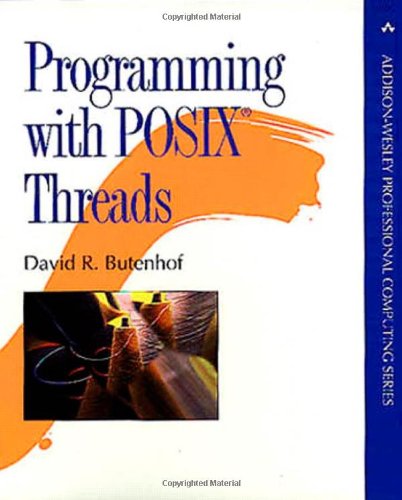Programming with POSIX threads epub
Par ackley susie le mardi, septembre 15 2015, 21:36 - Lien permanent
Programming with POSIX threads. David R. Butenhof

Programming.with.POSIX.threads.pdf
ISBN: 0201633922,9780201633924 | 398 pages | 10 Mb

Programming with POSIX threads David R. Butenhof
Publisher: Addison-Wesley Professional
Finally Microsoft Window's common programming API, Win32 is examined. Attempts to show how the library s features can be used in quot real-life quot programs It explains the different tools defined by the library shows how to use. Every modern operating system has support for threads, and most programming environments provide some level of support for threading. Some of the existing approaches to parallelization include using Windows and POSIX thread APIs, using MPI, and using the OpenMP shared memory threaded programming model. Here's a simple C program that demonstrates the use of the pthreads library for multicore programming. POSIX Threads is a widely supported standard, but has become more widely used due to the growth of the use of Embedded Linux. It is hard to believe, that earlier Linux kernels did not support threads. The problem with threads is the It turns out that POSIX Threads, Mach Threads, Windows Threads, Java Threads, and C# Threads all work very much the same, since they're all implemented in more or less the same way. First, let's import some necessary headers, mainly pthread.h which provides the POSIX threads implementation. Concerning functions provided by the interfaces is reduced in comparison to POSIX threads and offers less functionality. What threads give you is the ability for your program to do more than one thing at once . Instead, all the "threading" was performed entirely in user space by a pthread (POSIX thread) library chosen for specific program.